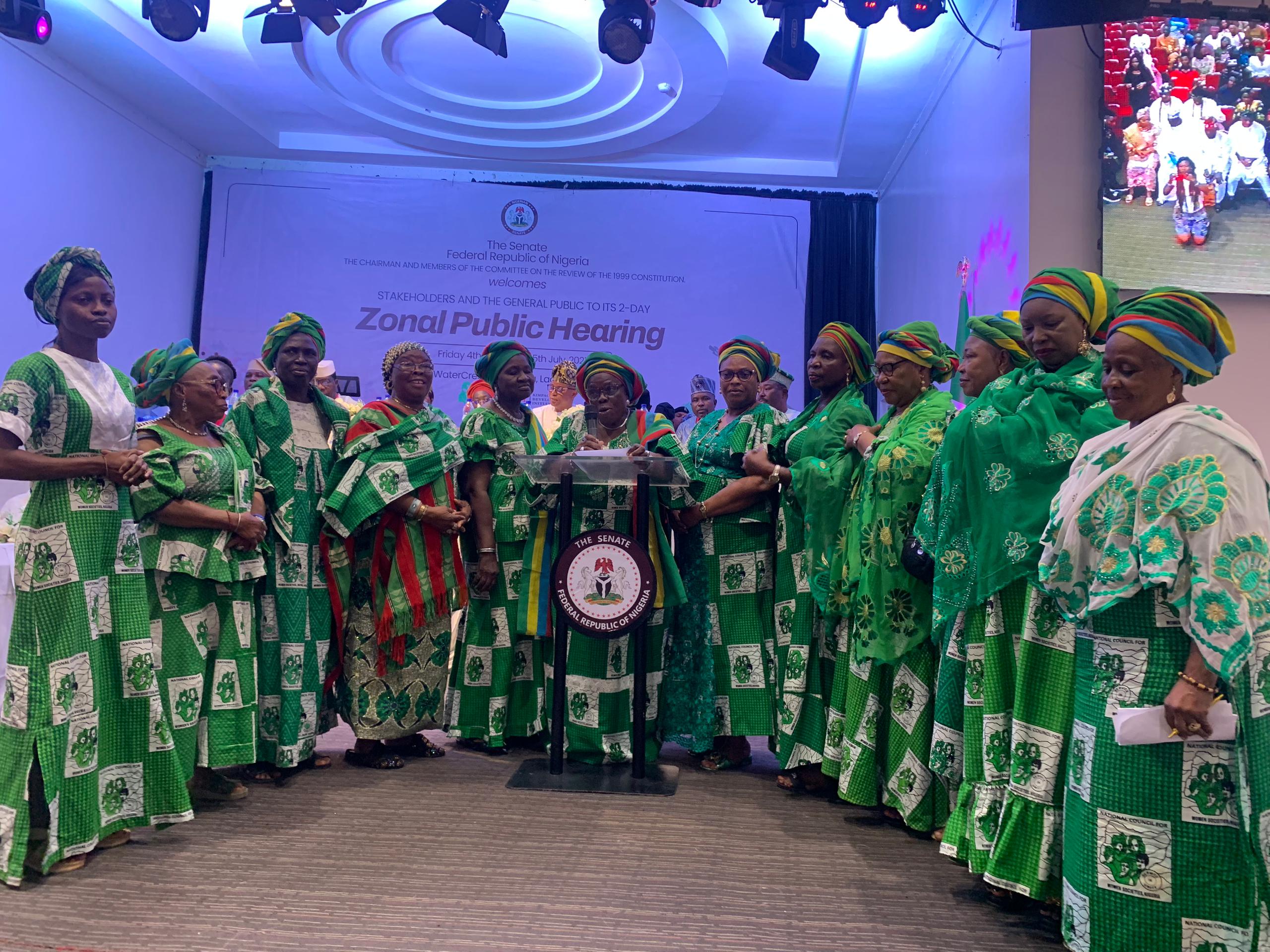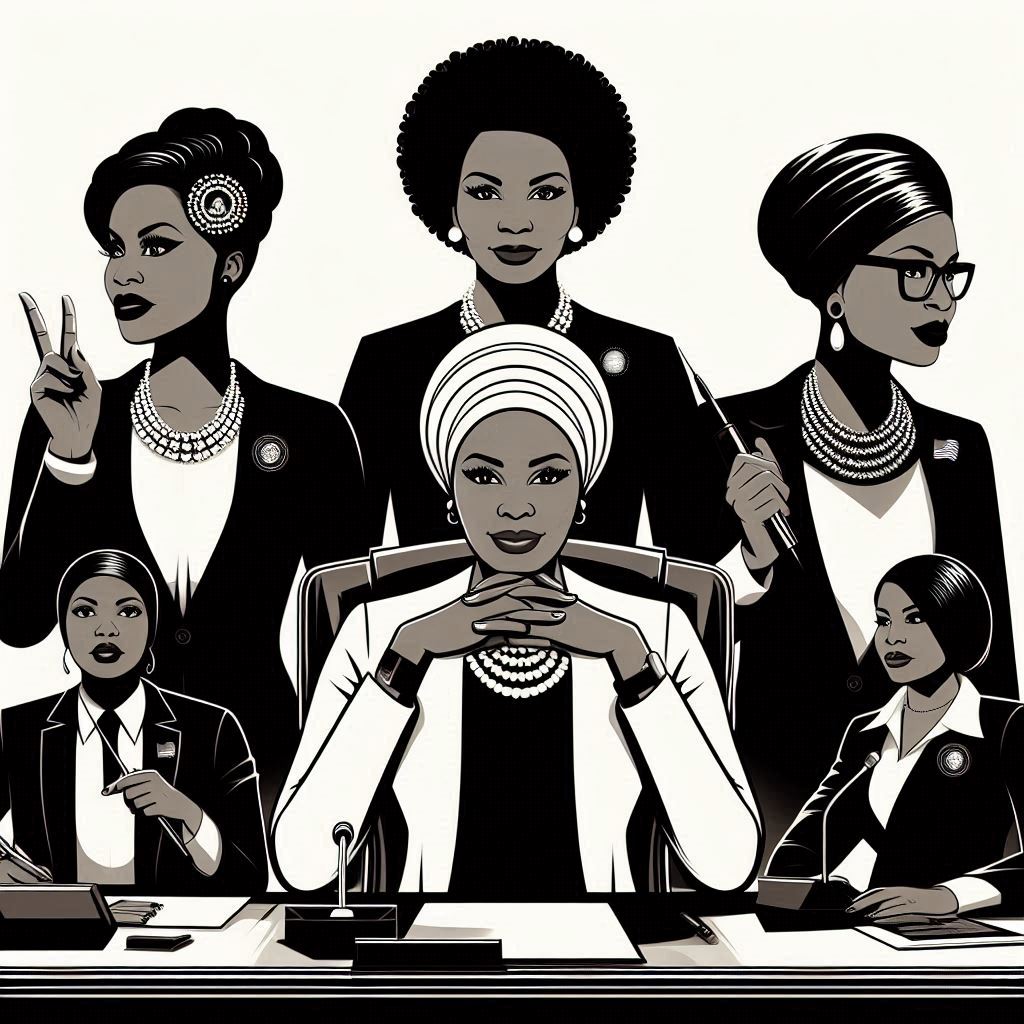
|
Getting your Trinity Audio player ready...
|
The advocacy for empowering women to participate more actively in politics and governance in Nigeria is gathering momentum once again, particularly as the country’s political discourse shifts increasingly towards the 2027 general elections. Indeed, the matter of increased female representation in politics was one of the dominant themes, as it should be in the recently concluded nationwide public consultations on constitutional review.
At each zonal hearing, women and other concerned stakeholders made passionate appeals for more inclusive democratic governance in the country.
However, given the failure of previous attempts at addressing and resolving the problem of gender imbalance in Nigeria’s electoral politics, one is not surprised to hear cynics say, “Here we go again.” Although successive governments have tried to implement policies that were aimed at boosting women’s representation in public decision-making, these attempts- albeit well-intentioned- failed abysmally.
It is no secret that previous attempts to pass a gender equality bill at the National Assembly, which would have included the much-touted 35 percent quota for women, have been unsuccessful.
In the meantime, women remain at the periphery of Nigeria’s political ecosystem. Consequently, they are grossly underrepresented in political leadership and governance at both the national and sub-national levels.
Currently, Nigeria has no substantive, legally binding affirmative action policy vis à vis fair and equitable gender representation in politics. Rather, a cursory review of the information on demographic representation in electoral politics and public decision-making in the country paints a picture of women’s political exclusion and marginalisation, even though Nigeria’s 1999 Constitution (as amended) underscores the right of every citizen, including women, to full participation in the life of the country. In particular, Section 40 states that:
“Every person shall be entitled to assemble freely and associate with other persons, and in particular, he may form or belong to any political party, trade union or any other association for the protection of his interests.”
The Constitution’s inclusive mandate above is quite clear. Yet, women have very limited access to political opportunities and structures. They do not have a seat at the table and, without that, their interests cannot be protected in any consequential way.
Globally, there is a consensus that women’s participation in all spheres of society accelerates sustainable development. Conversely, there is compelling anecdotal and empirical evidence that suggests that the exclusion of women from governance and public decision-making processes is inimical to social progress. As a consequence, many countries are striving (often through quotas) to increase women’s representation in their national parliaments.
A relatively recent United Nations report shows that in 2020, about 20 per cent of the world’s heads of state or government were women, while 25 per cent of parliamentary seats were held by women. Similarly, the proportion of cabinet ministerial positions held by women was 22 per cent, while they also constituted 20 per cent of the presidents or speakers of parliament.
Comparatively, Nigeria lags far behind. Currently, women constitute only a tiny proportion of the executive branch, the national and state assemblies. A close analysis of the data on four of the most recent national legislative assemblies underscores the point.
During the 7th National Assembly (2011-2015), eight out of 109 (about 7.3 per cent) of the Senate seats were occupied by women. Similarly, women held only 25 out of 360 seats (6.9 per cent) in the House of Representatives during the same period. A similar trend prevailed in the 8th assembly (2015-2019) in which women held only 7 out of 109 Senate seats (6.4 per cent), while they occupied 20 out of the 360 seats in the House of Representatives.
In the 9th Assembly (2019-2023), women held only 8 of 109 Senate seats and 13 of the 360 seats in the House of Representatives. Women have fared even worse in the 10th and current Assembly (2023-2027), in which they occupy only 3 of the 109 Senate seats and 17 of the 360 seats in the House of Representatives, representing only 4.2 per cent of the combined 469-seat National Assembly. There is more. To date, no woman has served as the president of the country, while only one woman has briefly served as the governor of one of the 36 states, although a few more have served as deputy governors.
Also, comparative data from the global organization of national parliaments- the Inter-Parliamentary Union, which among other things, measures the number of women in parliament globally monthly, show that as at July 2025, only 14 (3.9 per cent) out of 360 seats in the Nigerian house of Representatives and 3 (2.8 per cent) out of 109 seats in the Senate respectively, were occupied by women.
These figures earned the country a very low IPU ranking of 177 out of 181 countries. Taken together, these data suggest that Nigeria, which should be a leading example of gender equality (at least in Africa), is on a downward trajectory concerning women’s participation in electoral politics and, implicitly, in leadership and governance in the country.
Ironically, while women remain grossly underrepresented in politics in Nigeria, five of the top countries in the world with high female parliamentary representation are in Africa, as follows: Rwanda (61.3 per cent), Senegal (41.2 per cent), South Africa (44.6 per cent), Namibia (32.6 per cent) and Mozambique (39.2 per cent).
Notably, Rwanda has the highest parliamentary representation of women globally.
It bears emphasising that profound social change and sustainable development in Nigeria are inconceivable without the full participation of women in the socio-political arena. Keeping women at the margins of politics, governance, and public decision-making amounts to excluding one-half of the country’s population from the processes of development and nation-building (Egbo, 2014, 2024). Put differently, the transformative development we seek and yearn for in Nigeria cannot take place without co-opting women and giving them a seat at the table. Gender equality in all socio-political spheres is fundamental to good governance, a healthy and sustainable democracy. So, what is the way forward?
Transforming the status quo requires the adoption of several innovative interventions, including the removal of the structural and systemic barriers that impede women’s political participation.
Furthermore, enacting constructive affirmative action laws that guarantee women a certain number of seats within the country’s parliament and other organs of governance should be a non-negotiable intervention strategy. While the number of seats is negotiable, it is not unreasonable to expect that between 30-35 per cent of the seats at both the national and state assemblies should be reserved for women.
However, empowerment through quotas is only a starting point. Other reform-oriented interventions include removing the economic barriers that limit women’s access to resources such as campaign finance, removing cultural impediments, combating gender-based violence and building women’s capacity through mentorship and political literacy programmes.
Finally, a particularly innovative strategy for empowering women who aspire to political office is the establishment of support networks that are funded through private and public (government) capital.
Nigeria is at an important historical juncture. However, achieving its immense promise as a successful and thriving nation-state requires that women be co-opted and given a voice as equal partners in politics and public decision-making in ways that transcend symbolic tokenism.
The time is now. Indeed, the national parliament and other relevant parties should, as a matter of urgency, enact laws that guarantee women’s greater participation in politics and democratic governance in the country in the interest of equity, fairness and national unity. It is the patriotic thing to do for the common good.
Editor’s note: This story was first published on Punchng






